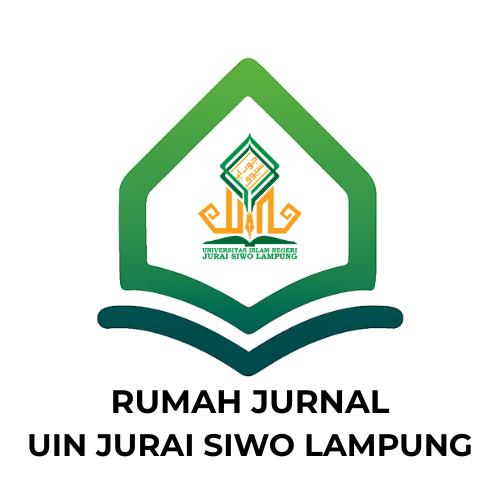DAMPAK NIKAH SIRI DALAM PEMBENTUKAN KELUARGA SAKINAH
Keywords:
Nikah siri, the Office of religious affairs, KHI, sakinah familyAbstract
Nikah siri is still a social phenomena which are quite lively at once became the arena of debate in the community. The practice of marriage of a series done by the lay community don't understand the law, though it did not close the possibility that marriage series conducted by people who understand the law. For some communities that still lay the law considers marriage as the best way out of the series and there is no element of sin in it because it was done according to Religion, just not recorded through the Employee's Marriage by the Office of religious affairs so it does not have evidence of authentic. But if traced in legal consequences, then the marriage resulted in a series of problems will happen not only at wife but to the status of the child. Mandatory marriage recorded in Office of religious affairs in order so that both partners got a legal umbrella in case things are not desired at a later date. When in wading through life preclude them getting your issue, then they will obtain legal aid. Metro Centre comprising five wards based on local regulations the City Metro number 25 in 2000 about the expansion Villages and subdistricts in the City Metro, is the administration area which covers five subdistricts (kecamatan): Metro, Village Imopuro, Village East Neighborhood Hadimulyo Hadimulyo of the West, and the village Yosomulyo. Of the five wards related, religious affairs (marriage) centralized in one Religious Affairs Office Metro Center. Of the five wards, there are some families who married siri, inasmuch as yet aware of the impact of the series of marriages. In addition, the lack of socialization of legal experts to provide guidance to the community. Indications of marriage in society series Metro Center never happen on a case experienced by the wives of married couples who have been married. In the absence of permission from the husband's Party Centre Metro the Office of religious affairs married again. This research seeks to uncover the factors that cause the occurrence of wedding series in Metro City, and how the impact caused to family sakinah. Background this study was traced how the magnitude of the percentage figure wedding series happening in Metro City. The research is the research field and the collection of data used is through the techniques of observation, and interviews. While the approach used is the juridical sociological approach-. The results of this research proves that marriage series in Metro City due to several factors including the presence of encouragement factor family (parents), the status of a student still, economic factors, the background of public education are low, a lack of understanding of the Act No. 1 of 1974 about marriage primarily about must record the wedding at the Office of religious affairs. Nikah siri masih menjadi fenomena sosial yang cukup marak sekaligus menjadi ajang perdebatan di masyarakat. Praktik nikah siri dilakukan oleh masyarakat awam yang tidak paham akan hukum, walaupun tidak menutup kemungkinan bahwa pernikahan siri dilakukan oleh orang-orang yang memahami hukum. Bagi sebagian masyarakat yang masih awam hukum menganggap bahwa nikah siri sebagai jalan keluar terbaik dan tidak ada unsur dosa di dalamnya karena telah dilakukan menurut Agama, hanya saja tidak dicatatkan melalui Pegawai Pencatat Nikah oleh Kantor Urusan Agama sehingga tidak mempunyai bukti otentik. Padahal jika ditelusuri secara akibat hukum, maka pernikahan siri berdampak pada persoalan-persoalan yang akan terjadi tidak hanya pada isteri tetapi terhadap status anak. Pernikahan wajib dicatatkan di Kantor Urusan Agama dengan maksud agar kedua pasangan mendapat payung hukum jika terjadi hal-hal yang tidak diinginkan di kemudian hari. Apabila dalam mengarungi kehidupan berumah tangga mereka mendapatkan persoalan, maka mereka akan memperoleh bantuan hukum. Metro Pusat yang terdiri atas lima kelurahan berdasarkan Peraturan Daerah Kota Metro Nomor 25 Tahun 2000 tentang Pemekaran Kelurahan dan Kecamatan di Kota Metro, merupakan wilayah administrasi yang melingkupi lima kelurahan antara lain : Kelurahan Metro, Kelurahan Imopuro, Kelurahan Hadimulyo Timur, Kelurahan Hadimulyo Barat, dan Kelurahan Yosomulyo. Dari lima kelurahan tersebut, terkait urusan keagamaan (perkawinan) terpusat di satu Kantor Urusan Agama Metro Pusat. Dari lima kelurahan tersebut, terdapat beberapa keluarga yang menikah siri, lantaran belum sadar akan dampak nikah siri tersebut. Selain itu, minimnya sosialisasi dari pakar hukum untuk memberikan penyuluhan terhadap masyarakat. Indikasi nikah siri di masyarakat Metro Pusat pernah terjadi pada suatu kasus yang dialami oleh pasangan suami isteri yang telah menikah. Tanpa adanya izin dari pihak Kantor Urusan Agama Metro Pusat pihak suami menikah kembali. Penelitian ini berusaha mengungkap faktor-faktor yang menimbulkan terjadinya pernikahan siri di Kota Metro, dan bagaimana dampak yang ditimbulkan terhadap keluarga sakinah. Latar belakang penelitian ini adalah menelusuri berapa besarnya persentase angka pernikahan siri yang terjadi di Kota Metro. Penelitian ini adalah penelitian lapangan dan pengumpulan data yang digunakan adalah dengan melalui teknik observasi, dan wawancara. Sedangkan pendekatan yang digunakan adalah pendekatan yuridis-sosiologis. Hasil penelitian ini membuktikan bahwa pernikahan siri di Kota Metro disebabkan oleh beberapa faktor diantaranya adalah faktor adanya dorongan keluarga (orang tua), status yang masih pelajar, faktor ekonomi, latar belakang pendidikan masyarakat yang rendah, kurangnya pemahaman tentang Undang-Undang No.1 Tahun 1974 tentang Perkawinan terutama tentang keharusan mencatatkan pernikahan di Kantor Urusan Agama.References
Downloads
Published
2016-10-25
Issue
Section
Articles
License
Copyright (c) 2016 Tarmizi Tarmizi

This work is licensed under a Creative Commons Attribution-ShareAlike 4.0 International License.
How to Cite
DAMPAK NIKAH SIRI DALAM PEMBENTUKAN KELUARGA SAKINAH. (2016). Istinbath: Jurnal Hukum, 13(2), 327-360. https://e-journal.metrouniv.ac.id/istinbath/article/view/306













